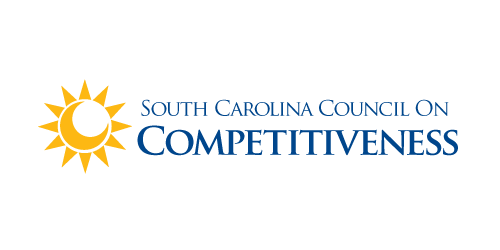For the fourth consecutive year, the TDL Council brought together South Carolina’s top leaders from the transportation, distribution and logistics industry for the TDL Summit, the annual event that has become synonymous with South Carolina’s TDL industry.
In the spirit of partnership and collaboration, the Summit provides a forum for public leaders to provide their perspective, business leaders to share best practices, educational partners to share new projects, and attendees to learn, network and celebrate the industry’s successes.

This year’s event, held April 24 at the Columbia Metropolitan Convention Center, drew a record crowd of more than 200 attendees. The day began with remarks by Governor Haley.
The Governor said that South Carolina’s infrastructure and regional positioning attracts industry to the state, but acknowledged the need for improvement to infrastructure. Governor Haley addressed questions from the crowd and then passed the microphone to the Secretary of Commerce, Bobby Hitt.

Secretary Hitt said when the Department of Commerce recruits industry to the state, the top three subjects of conversation are: 1) inventory; 2) workforce; and 3) logistics. He also said that economists predict South Carolina’s TDL cluster will grow by 4% in 2014. He expects that infrastructure will continue to be an asset in recruiting companies to South Carolina. The crowd enjoyed a brief break before hearing from Alan Torres, General Manager of Nuclear Construction for SCE&G, on logistical challenges in the construction of the new Jenkinsville nuclear facility. His presentation illustrated how a component weighing 605,000 pounds was shipped from North Korea to the Port of Charleston then hauled by a truck over highways, under power lines and through small towns. South Carolina Ports President & CEO Jim Newsome was next up.


Newsome told the crowd he sees the Ports as businesses with the people of South Carolina as shareholders. The audience was thrilled to learn that the Port of Charleston is now the fastest growing Port in the US. The Charleston Port also gives South Carolina a competitive advantage because it is the only port in the region offering 50’ depth. Newsome also stressed the important of the inland port at Greer, as rail volume has increased by 50% since 2011.

After Mr. Newsome’s presentation, lunch was served and a panel was convened to discuss different perspectives on infrastructure needs. Each of the participants identified the most important infrastructure issue for their industry cluster. Jack Shuler, President of the South Carolina Agribusiness Council, said the priority concern for agribusiness in the state is the condition of roads and bridges in rural South Carolina. Rob Roberson, Logistics Manager for Nucor, said the priority concern for the recycling cluster is the productivity of the trucking industry.
Dr. David Neyens, Assistant Professor of Industrial Engineering at Clemson took to the state to discuss scoring the economic development impact of transportation infrastructure projects. He is working very closely with the Department of Transportation (DOT) and handed a survey to the crowd asking them to rank economic development indicators in terms of importance. His team will be making recommendations to the DOT on which indicators to use when prioritizing projects.
Next up was Deputy Secretary for Intermodal & Freight Programs, Doug Frate. He emphasized the importance of events like the TDL Summit and continuing collaboration of state agencies like the Department of Commerce and the DOT with groups like the TDL Council.
He announced that the DOT’s 25-year multimodal transportation plan will be ready for publication by this summer.
Deputy Secretary Frate also emphasized that South Carolina’s highway system is the 4th largest state-maintained highway system in the nation. He informed the crowd the cost per mile of maintaining the state’s roads - to preserve $20K; to rehabilitate $125K; to reconstruct $200K – and the implications of these costs on prioritizing improvement projects.

The next to last speakers were Alfred Hass, Department Manager of Material and Transportation Control and Delivery Assurance for BMW, and Brian Gwin, Industrial Development Manager for Norfolk Southern. The duo discussed the long-term partnership of their respective companies and the effects BMW’s expansion will have on transportation and logistics. BMW’s South Carolina facility is now the second largest value exporter in the world for the company. Norfolk Southern is now the originator for more finished vehicles than any other rail company in North America.

Last to go was the energetic Lexington County native Lou Kennedy, President & CEO of Nephron Pharmaceuticals Corporation. She spoke about the construction of the new facility in Lexington County and explained how temperature regulation is extremely important for pharmaceuticals. SCANA, located next door to Nephron in the Saxe Gotha Industrial Park, was a key partner in designing and implementing contingency power in case of an outage. She also spoke about Nephron’s partnership with CSX Rail and the construction of a rail spur on-site to bring all resin deliveries directly to Nephron.
Kennedy held a ribbon-cutting ceremony on June 4th opening the facility that was finished one year ahead of the expected completion date.
 iTslSC, the Insurance, Technology and
Services cluster of the Midlands, launched the inaugural Leadership Insurance
course on April 15th at BlueCross BlueShield. Leadership Insurance is
an 8-part course designed to provide a forum for the rising stars of the
local industry to connect, collaborate, learn and grow. It is the only known program of its kind in
the country within the insurance tech industry.
iTslSC, the Insurance, Technology and
Services cluster of the Midlands, launched the inaugural Leadership Insurance
course on April 15th at BlueCross BlueShield. Leadership Insurance is
an 8-part course designed to provide a forum for the rising stars of the
local industry to connect, collaborate, learn and grow. It is the only known program of its kind in
the country within the insurance tech industry.








